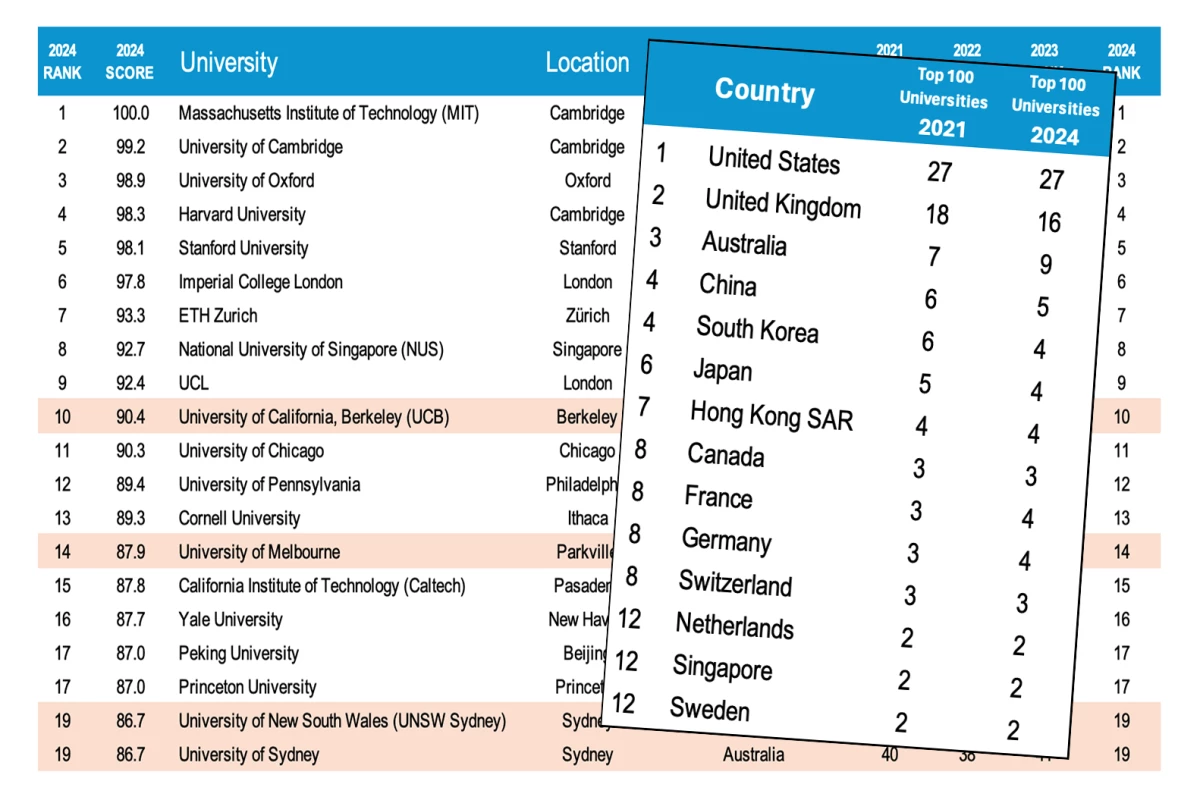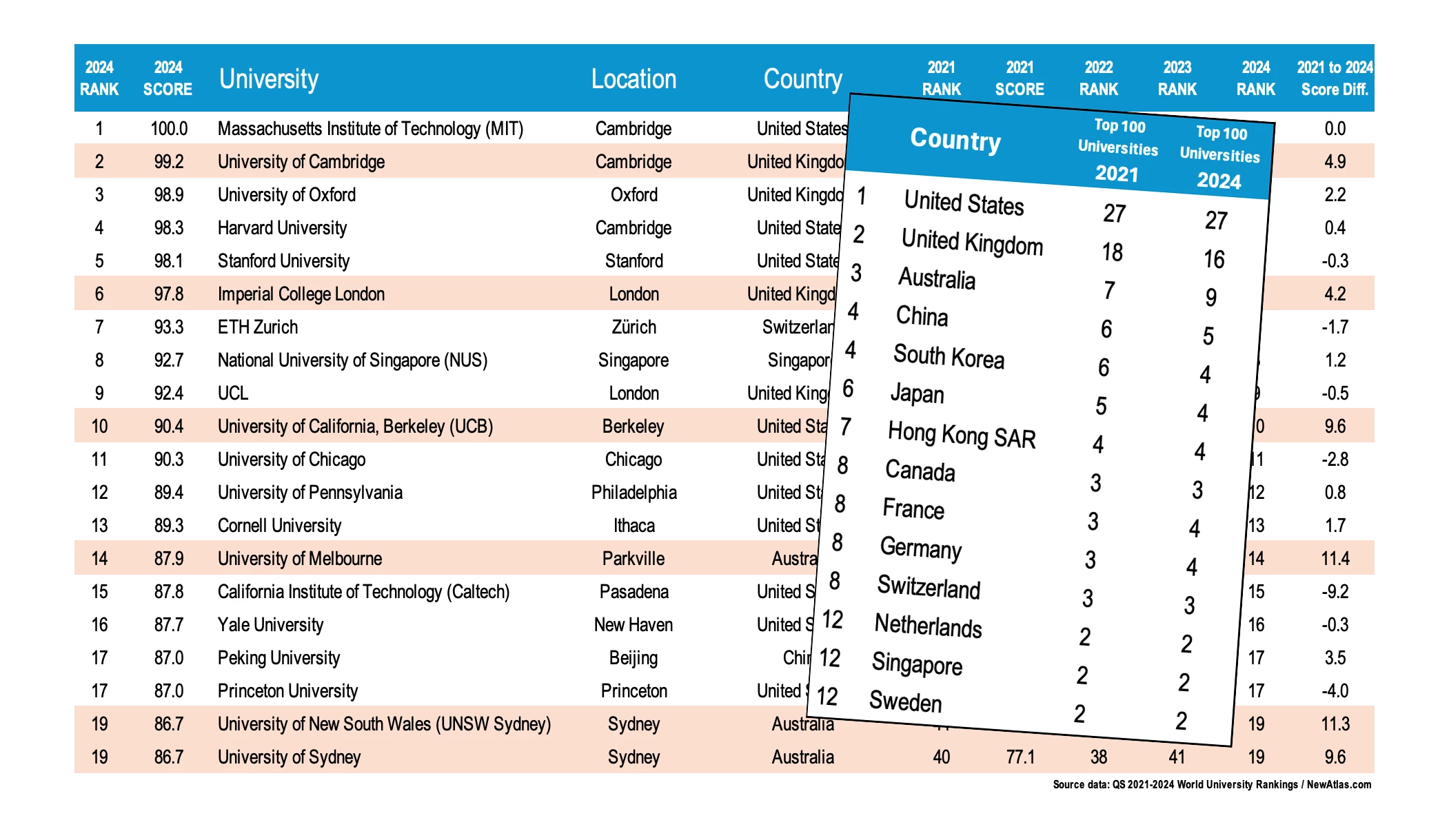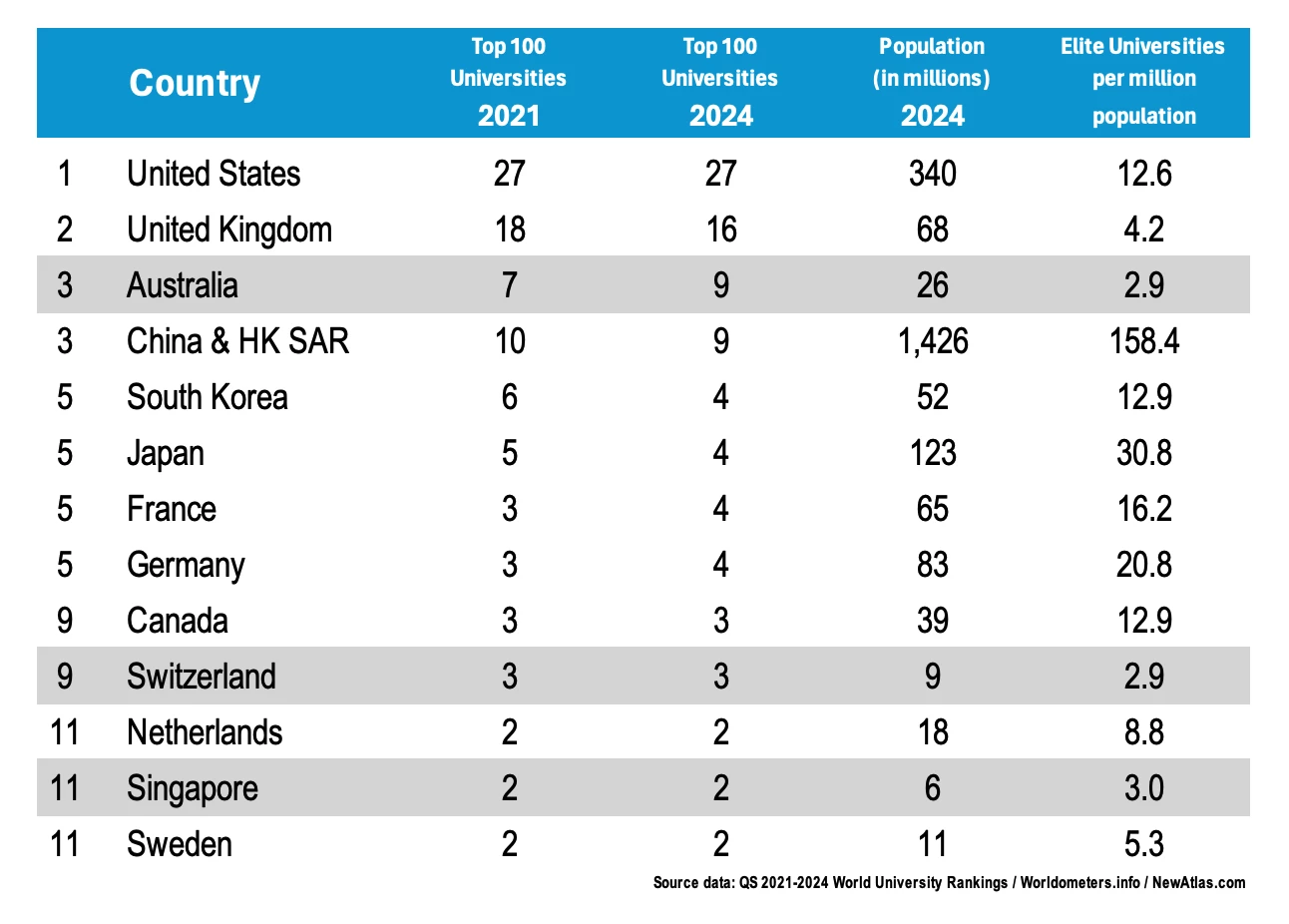The geography of the education world appears to be changing.
The 2024 QS World University Rankings were released this week, and with three new key metrics added to the scoring process, several universities have moved into the elite international forefront, while traditional icons of educational excellence are being pushed below the fold.
Long held reputations are likely to have much shorter half lives in the future as university choice is increasingly based on larger and more relevant data sets, and after 20 years building its database, the QS World University Rankings covers 1500+ universities in 96 countries across 55 disciplines and includes analysis of 17.5 million academic papers and the opinions of 240,000 academic faculty and employers.
The result is an incredibly granular independent comparative analysis of academic excellence that builds year upon year with more detail and more data. The ranking methodology was further refined this year by including metrics for a University’s graduate employment outcomes, it’s International Research Network and for sustainability.
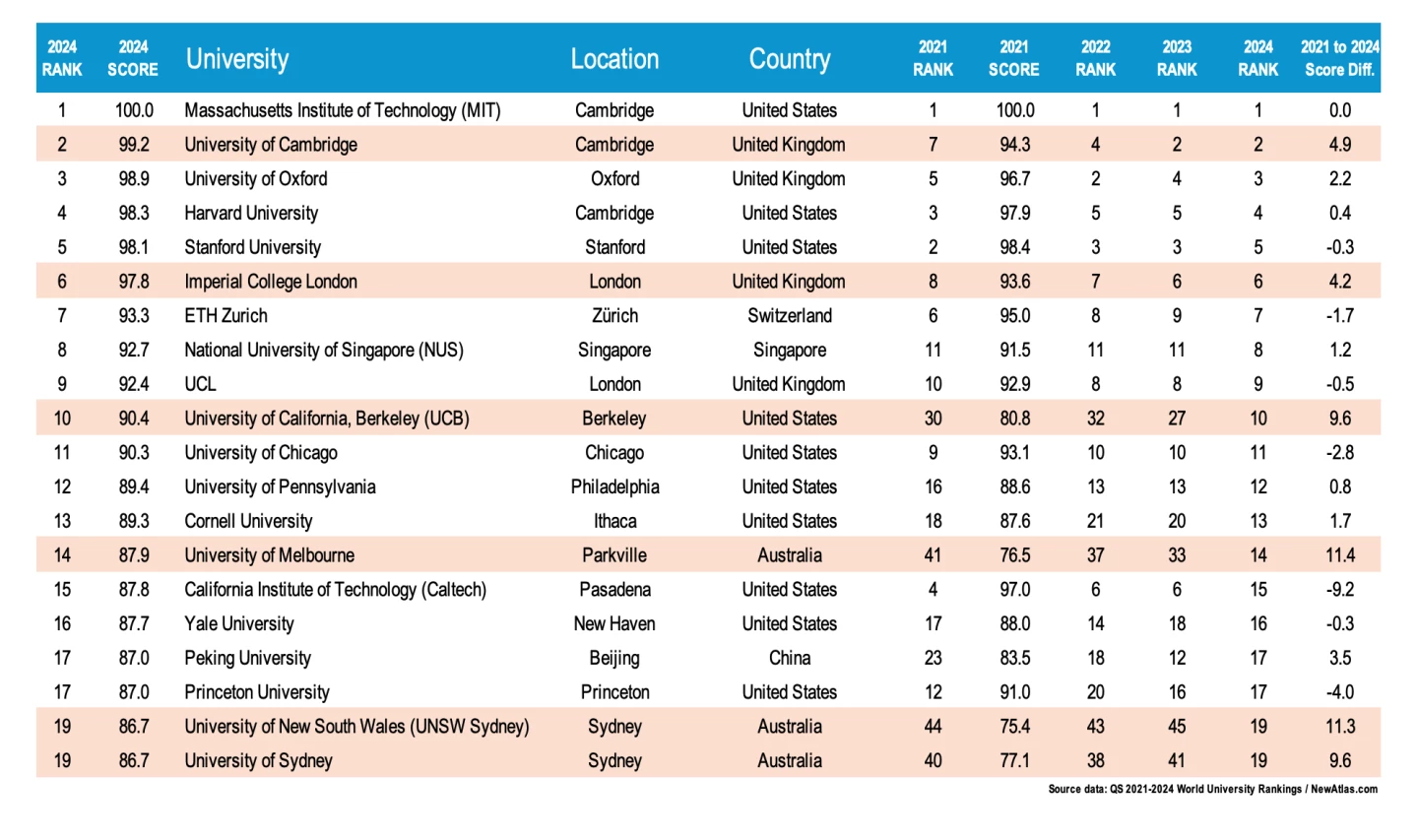
A 2022 QS International Student Survey found that 80 percent of students think universities could do more for the environment, so this was factored into the overall score and you can see from the top-line data that there are some big changes in the rankings for a few universities.
The rankings are designed to help prospective students find the leading schools in their field of interest, but there’s an absolute feast of relevant data for all sorts of insights into the world educational system and where we send the brightest minds of the next generation.
The usual suspects still fill the podium positions, with MIT ranked as the best university in the world for the twelfth straight year, but it was equally clear that the general quality of education is improving at the top, but the gap is closing to middle-tier universities, at least in the QS annual score.
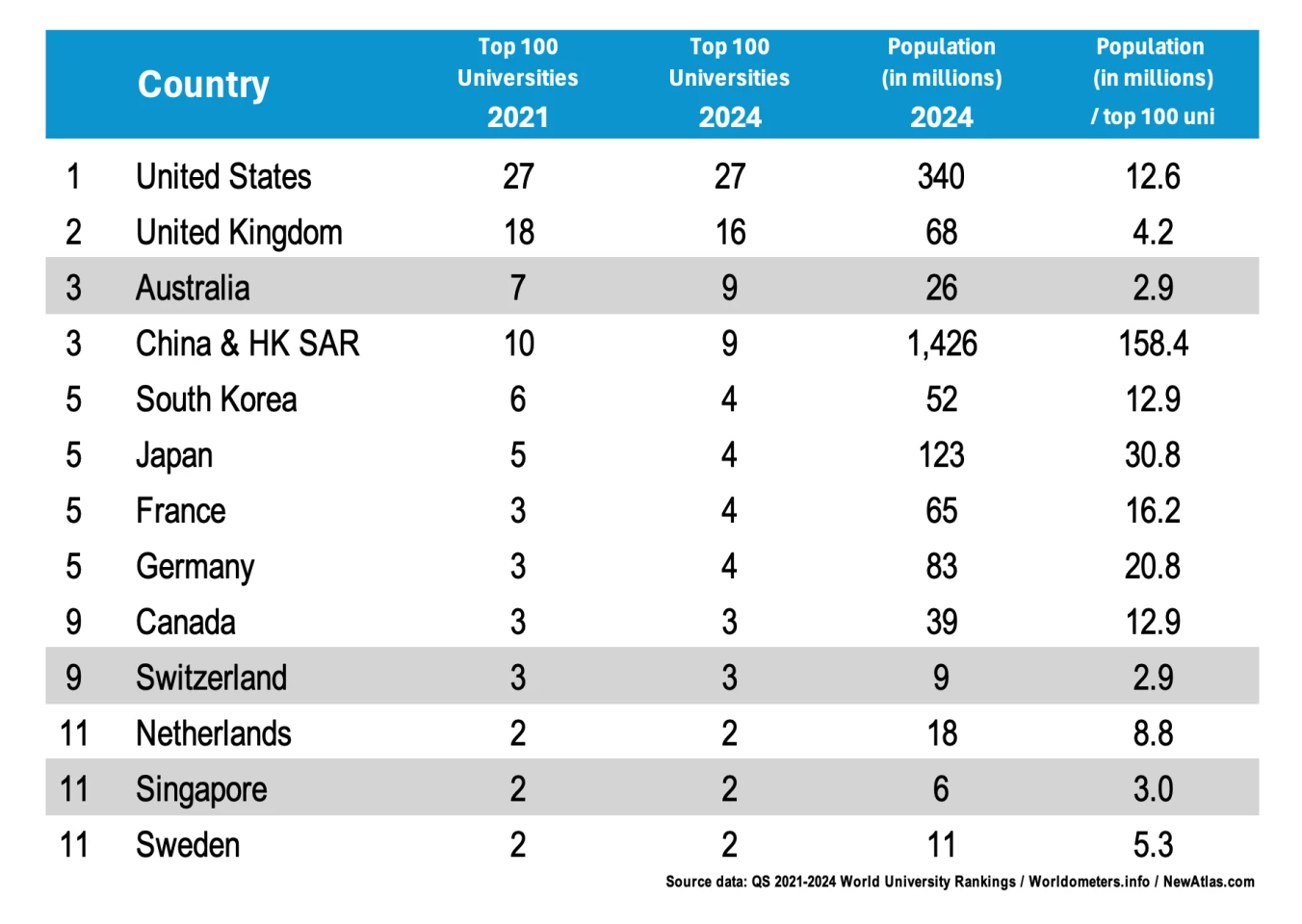
Some countries such as Australia, Singapore and Switzerland obviously prioritise education above all else, but remember this is only one metric (number of Top 100 Universities) and China is investing massively in the education of its people and there will be wholesale change in these rankings over the next few years.
If you're a data person and thinking about the best university for yourself or a significant other to attend, then pack a cut lunch and head over to the latest rankings. There are lots of fascinating insights to be had.
